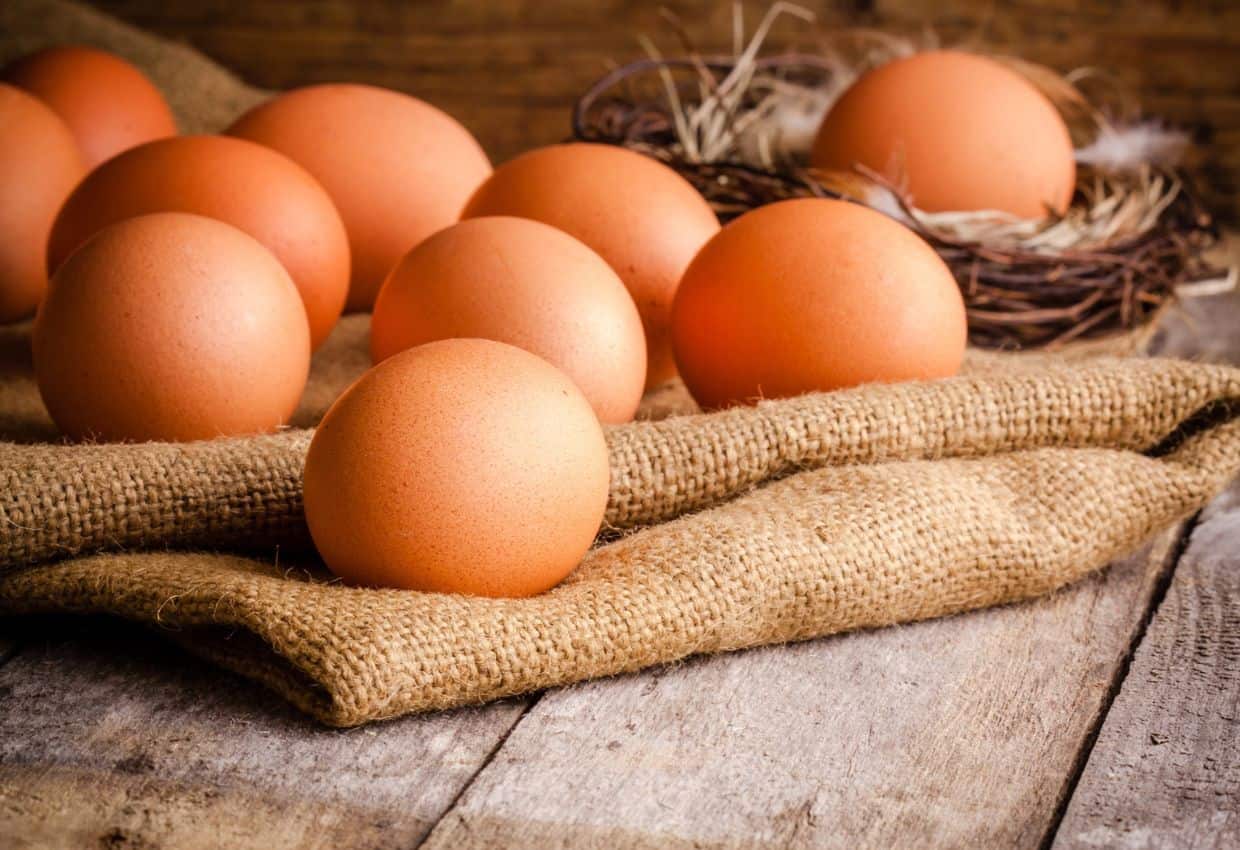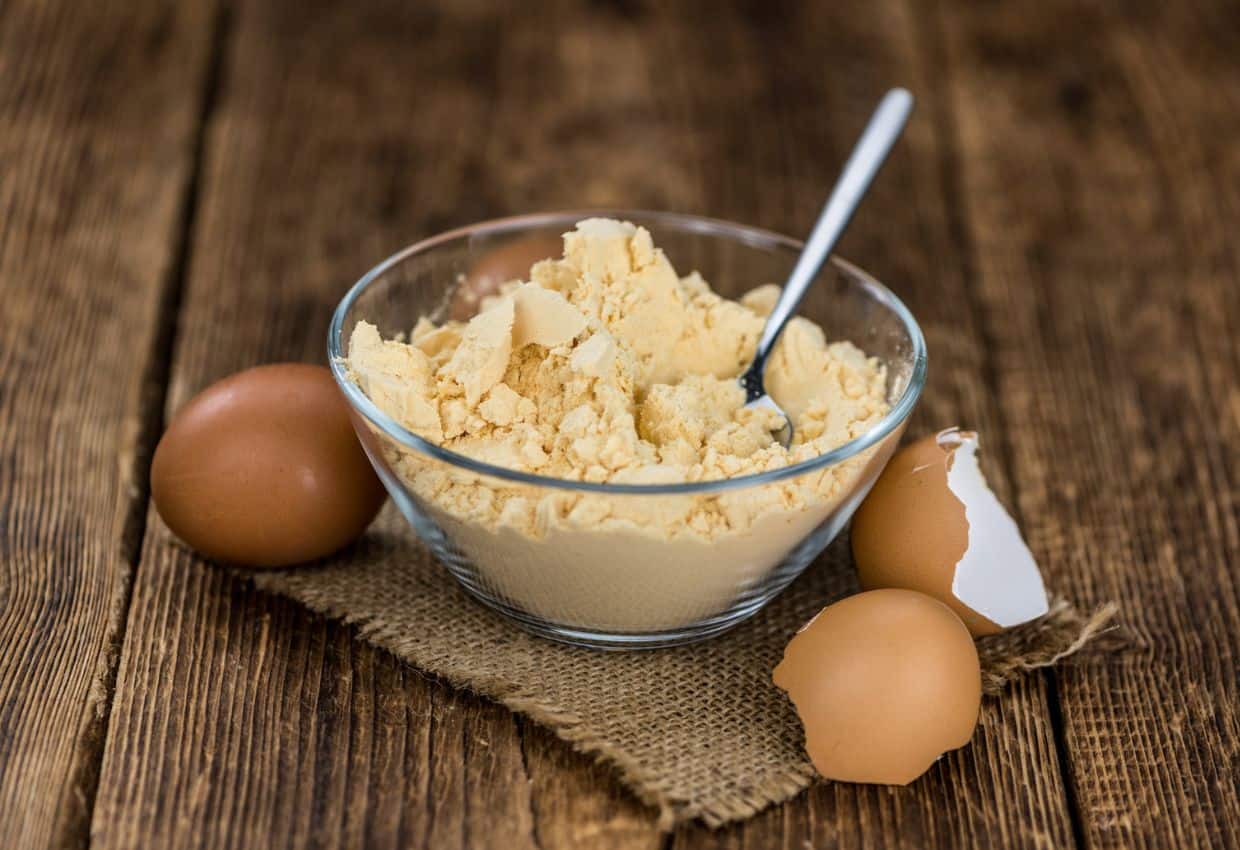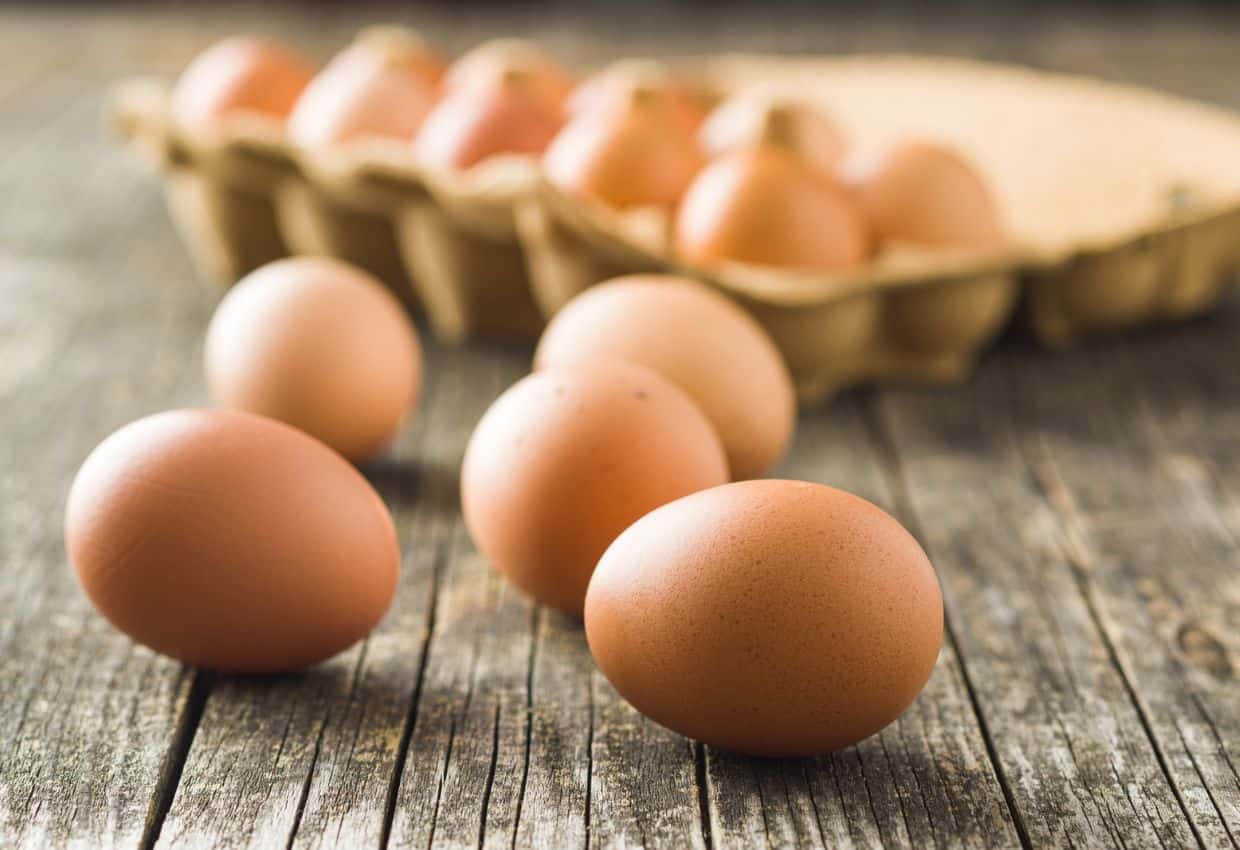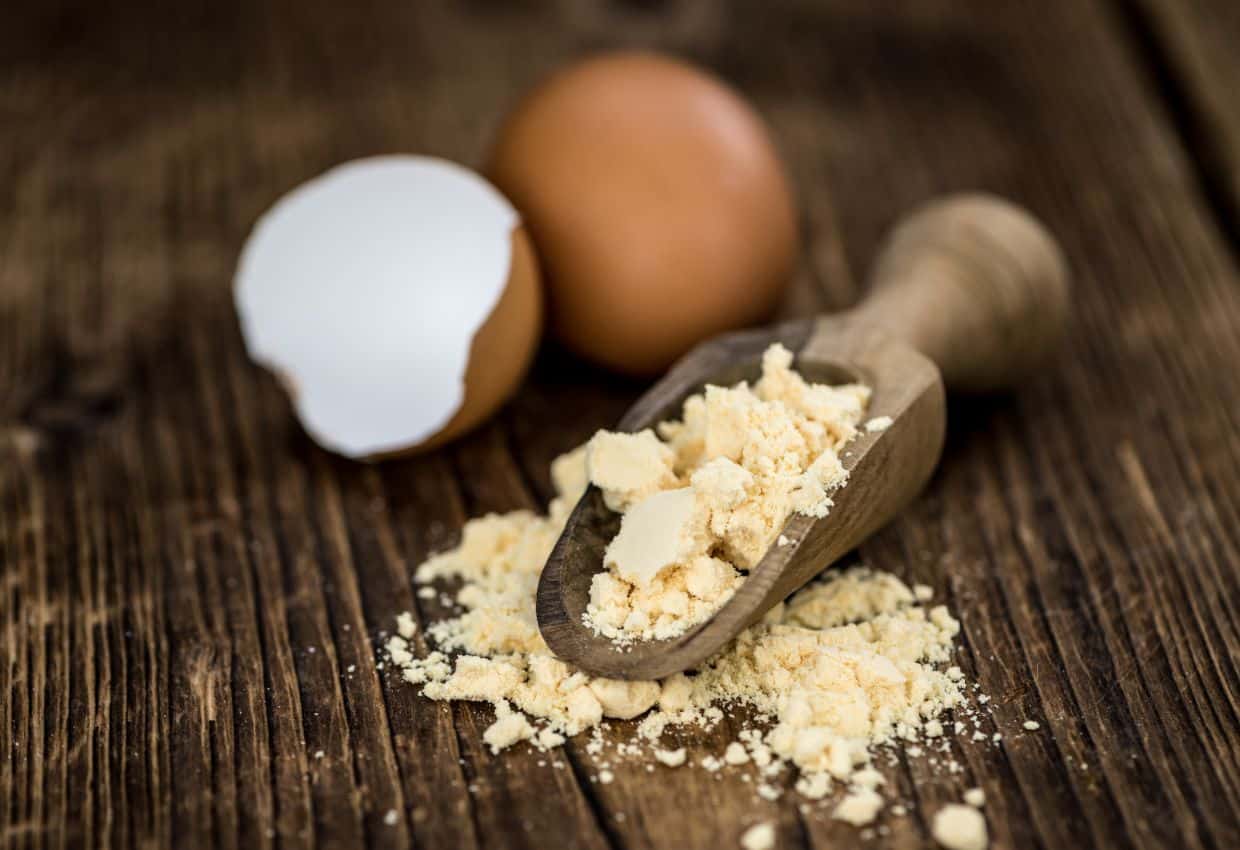Do you have more farm fresh eggs than you can eat? Whether you have a coop full of overachieving hens or just hit the jackpot at the farmer’s market, it’s time to learn how to make those eggs last. Here are four ways to preserve your farm fresh eggs for later.

Saving money, reducing food waste and ensuring a consistent supply of eggs throughout the year are just a few reasons to learn different methods of preserving fresh eggs.
Freeze your eggs
If your fridge is overflowing with eggs, transfer some to the freezer and freeze your eggs for later. You have several options for freezing eggs, depending on your plans.
Break the eggs into an ice cube tray and freeze them in individual cubes. Thaw cubes as needed to use in breakfast dishes or baking recipes.
Alternatively, you could scramble the eggs without cooking them before freezing them in an ice cube tray, then thaw them for a fast scrambled egg breakfast.
If you frequently bake with egg whites, separate the whites from the yolks before freezing. Otherwise, they get watery, making it difficult to separate them after thawing.
And if you like a specific cooked egg dish, simplify your future food prep by cooking a big batch of scrambled eggs, omelets, egg breakfast burritos or quiches. Then freeze them in single-serving freezer containers for quick and easy breakfasts or make ahead camping meals.
It’s also important to add salt or sugar to best preserve the texture of farm fresh eggs when freezing.
Dehydrate eggs

Dehydrating eggs is a popular method of preserving farm fresh eggs without a fridge or freezer. Dehydrated eggs take little space and can be a good choice for households that stock prepper pantries or emergency kits.
To dehydrate eggs, crack them into a bowl and whisk together before pouring them onto a fruit leather tray in your dehydrator.
FDL’S 75 Best Bites

Our cookbook with 75 tasty recipes will be your go-to kitchen companion for easy dinners with ad-free recipes right at your fingertips. Crafted by experienced chefs and recipe developers, this collection offers a treasure trove of tried-and-true dishes that make mealtime a breeze.
Get the Recipe: FDL’S 75 Best Bites
Set the dehydrator at 140 F for eight to 10 hours. Occasionally stir eggs so they dry consistently. Break the dried eggs into chunks, then use a coffee grinder or blender to grind them into powdered eggs if you prefer these to dehydrated egg pieces.
To rehydrate and cook your dehydrated or powdered eggs, add water and wait 20 minutes. Use rehydrated eggs in baking, scrambled eggs or even omelets.
Dehydrated or powdered eggs are lightweight and take little space, making them an excellent addition to backpacking meals or camping kitchen supplies.
Water glass farm fresh eggs

Long before every home had a fridge and freezer, North American households were learning how to water glass eggs for long-term storage. This simple egg preservation method protects eggs from bacteria that cause the breakdown of the shells.
Water-glassing eggs helps to avoid egg spoilage by encasing the shells in a liquid lime solution.
However, do not try water-glassing store-bought eggs.
In North America, grocers usually store commercially grown eggs in the refrigerated section. Their bloom, the protective layer that coats the egg when laid, gets washed away during commercial egg processing.
When water-glassing, only use unwashed farm fresh eggs so the bloom remains intact. The bloom naturally on the eggs helps protect the eggs from going bad for several weeks.
How to water glass eggs
You will need pickling lime, filtered or distilled water and a storage container with a lid to water glass eggs.
Mix your lime solution with one ounce of pickling lime to one quart of water.
Exceeding the lime-to-water ratio won’t harm your eggs; however, not using enough lime can harm them, so measure carefully. Weigh the lime and water on the side of caution and add a little extra if you don’t have a kitchen scale.
Place fresh unwashed eggs into a wide-mouthed container and add the solution. Then store water-glassed eggs in the lime solution for up to two years, providing the eggs haven’t cracked.
Avoid moving your water-glassed eggs or adding too many eggs to the container to minimize the chance of accidentally breaking the lower layer of eggs.
Water-glassing eggs does not pickle them. This method of preserving eggs lets you use them just like fresh eggs come winter.
“Water glassing eggs is an easy and straightforward way to preserve farm fresh eggs. The hardest part was finding eggs clean enough to use because you can’t wash them before immersing in the pickling lime solution.”
— Laura Sampson, Little House Big Alaska
Preserve eggs in lard
One way to make washed fresh eggs last longer involves replacing the bloom if it was removed due to washing.
Do this with lard, mineral oil or shortening. It’s a good option if eggs are one of the items you buy in bulk to stock your pantry and you expect to use them within four months.
Preserving eggs in lard, mineral oil or shortening may work best when the weather is cool, and the risk of spoiling is lower. Inspect each egg carefully to ensure each egg gets fully coated with the oil or shortening.
“Preserving fresh eggs with a lard rub carried my eggs through many months of cold weather. It was a simple process my children and I worked on together. We buffed fresh eggs with lard until the usually porous shells were sealed and prepped for long-term storage. Out of 120 eggs, none spoiled, even after being stored at room temperature for four months.”
— Jessica Haggard, Primal Edge Health
Preserve and store eggs for the long term

If you have too many eggs, try one of several methods to store them for later.
Other than refrigeration, you could try freezing them. Safely storing eggs for the long term may help you save money and feel better about your family’s food supply.
Sarita Harbour is a homeschooling, homesteading mom and a long-time business and finance writer. She created An Off Grid Life to help people become more self-reliant. Sarita and her family live off the grid in Canada’s Northwest Territories.
This article originally appeared on An Off Grid Life.